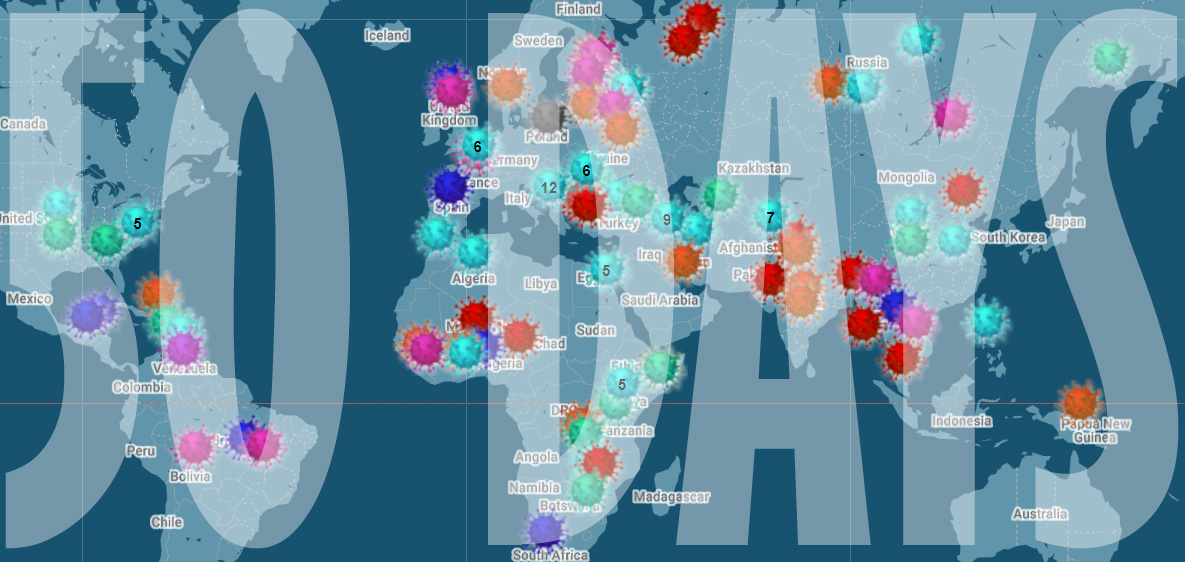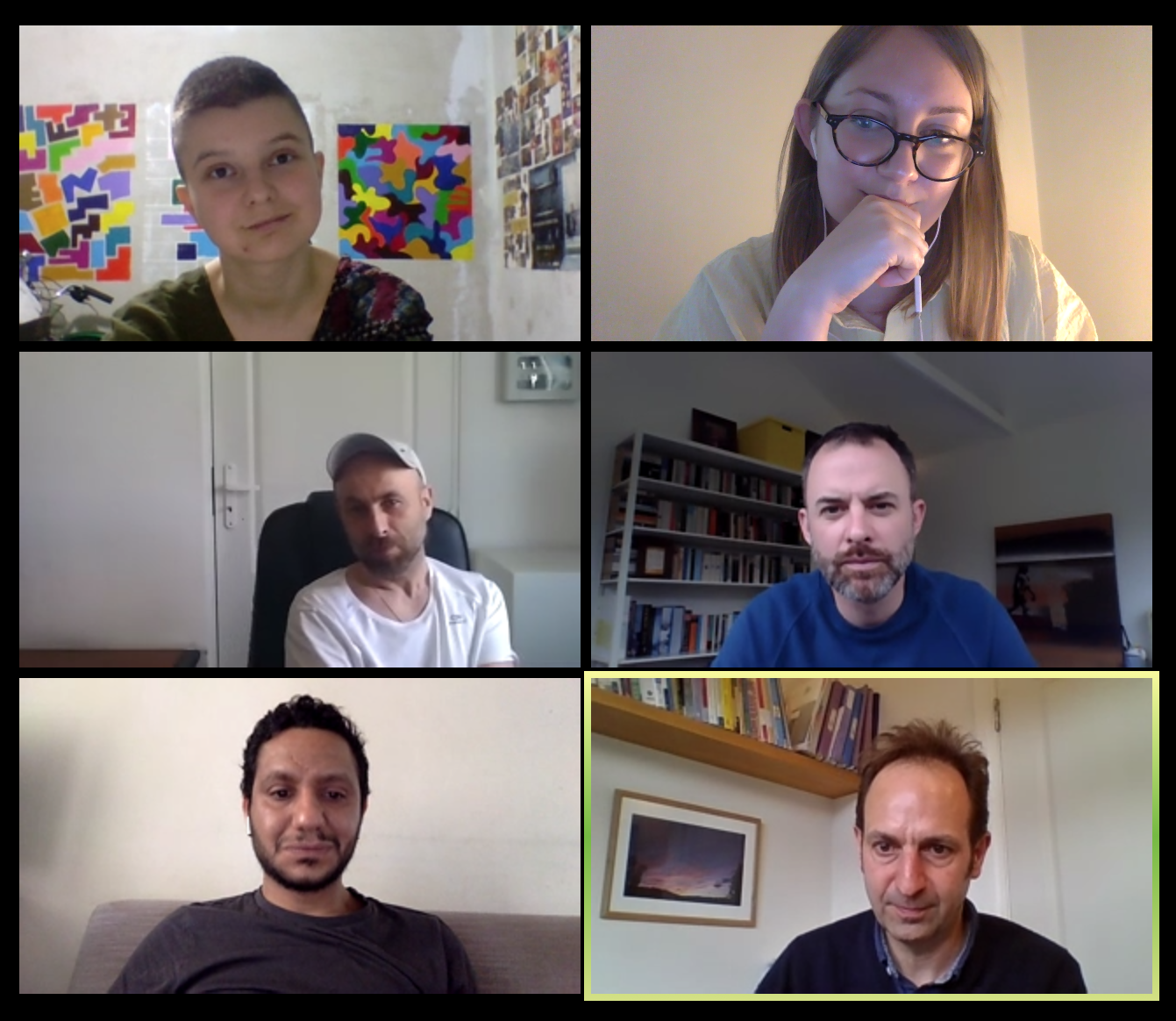17 May 2020 | Statements
Index calls for the immediate release of Lina Attalah, the editor and co-founder of the Egyptian news website Mada Masr, one of the few independent news outlets in the country to offer an alternative narrative to government-controlled media.
Attalah was arrested outside Tora prison while attempting to interview the mother of Egyptian blogger and political activist Alaa Abd El Fattah, who had been arrested in September 2019 after writing a critical column in Mada Masr. He is currently on hunger strike protesting his pretrial detention conditions.
Rachael Jolley, editor-in-chief of Index on Censorship, said: “Lina was doing her job and reporting on a climate of crackdown and fear in Egypt right now, where news coverage happens under extreme pressure. We call on the international community not to ignore what is going on in Egypt.”
Mada Masr, which was shortlisted in the journalism category in Index’s 2016 Freedom of Expression Awards, was one of 21 websites blocked by the Egyptian authorities in 2017 for “supporting terrorism and extremism and spreading lies” in violation of the International Covenant on Civil and Political Rights.
Freedom of expression is coming under increasing attack in Egypt and media critical of the government of president Abdel Fattah el-Sisi face huge challenges in doing their important work.
14 May 2020 | Covid 19 and freedom of expression, News and features
[vc_row][vc_column][vc_column_text]
As we mark 50 days since we first started collating attacks on media freedom related to the coronavirus crisis, we’re horrified by the number of attacks we have mapped – over 150 in what is ultimately a short period of time.
We know that in times of crisis media attacks often increase – just look at what happened to journalists after the military coup in Egypt in 2013 and the failed coup against Recep Tayyip Erdogan in Turkey in 2016. The extent of the current attacks, in democratic as well as authoritarian countries, has been a shock.
Our network of readers, correspondents, Index staff and our partners at the Justice for Journalists Foundation have helped collect the more than 150 reports media attacks.
But these incidents are likely to be the very tip of the iceberg. When the world is in lockdown, finding out about abuses of power is harder than ever. Journalists are struggling to do their job even before harassment. How many more attacks are happening that we don’t yet know about? It’s a scary thought.
Rachael Jolley, editor-in-chief of Index on Censorship, said: “We are alarmed at the ferocity of some of the attacks on media freedom we are seeing being unveiled. In some states journalists are threatened with prison sentences for reporting on shortages of vital hospital equipment. The public need to know this kind of life-saving information, not have it kept from them. Our reporting is highlighting that governments around the world are tempted to use different tactics to stop the public knowing what they need to know.”
Index is alarmed that the attacks are not coming from the usual suspects. Yes, there have been plenty of incidents reported in Russia and the former Soviet Union, Turkey, Hungary and Brazil. At the same time there have been many incidents in countries you would not expect to see – Spain, New Zealand, Germany and the UK.
The most common incident we have recorded on the map are attacks on journalists – whether physical or verbal – and cases where reporters have been detained or arrested. There have been more than 30 attacks on journalists, with the source of many of these being the US President Donald Trump. He has a history of being combative with the press and decrying fake news even where the opposite is the case and the crisis has seen a ramped up attempt at excluding the media. During the crisis, he has refused to answer journalists’ questions, attacked the credentials of reporters and walked out from press conferences when he doesn’t like the direction they are taking.
We have also seen reporters and broadcasters detained and charged just for trying to tell the story of the crisis, including Dhaval Patel, editor of the online news portal Face of Nation in Gujarat, Mushtaq Ahmed in Bangladesh and award-winning investigative journalist Wan Noor Hayati Wan Alias in Malaysia.
Since we started the mapping project, we have highlighted other specific trends. Orna Herr has written about how coronavirus is providing pretext for Indian prime minister Narendra Modi to increase attacks on the press and Muslims. Jemimah Steinfeld wrote about how certain leaders are dodging questions while we have also looked at how freedom of information laws are being suspended or deadlines for information extended.
Although the map does not tell the whole story it does act as a record of these attacks. When this crisis is finally all over, it will allow us to ask questions about why these attacks happened and to make sure that any restrictions that have been introduced are reversed, giving us back our freedom.[/vc_column_text][/vc_column][/vc_row][vc_row][vc_column][vc_btn title=”Report an incident” shape=”round” color=”danger” link=”url:https%3A%2F%2Fforms.gle%2Fhptj5F6ZvxjcaGLa7|||” css=”.vc_custom_1589455005016{border-radius: 5px !important;}”][/vc_column][/vc_row]
7 May 2020 | Awards, Fellowship, Fellowship 2020, News and features
As part of the Freedom of Expression fellowship week, we’ve become used to working with individuals or organisations who cannot get to London. Individuals who are imprisoned, for example, or those who have had their travel restricted. But this year’s global lockdown presented challenges on a different scale. As a result we did our first ever digital fellowship week.
“Because the fellows were not physically together, it has been harder to find times to work for everyone. Most fellows have internet access so we can keep in contact but communication can be difficult,” said Leah Cross, Index’s senior events and partnership manager, speaking about the challenges of creating the first online fellowship week for the winners of the Index 20th Freedom of Expression awards.
“It was a shame not to meet them in person but everyone has been quite flexible,“ she added.
This year more than ever, we have recognised that our Freedom of Expression Awards are not just about a single night in a London hotel. The coronavirus crisis meant we had to hold the awards ceremony online in mid-April rather than at The May Fair hotel but, in fact, even in other years when a physical awards ceremony was possible, the awards are more than just the symbolic handing over of a prize.
“We usually plan a week of activity including workshops, meetings with partners and other fellows and radio interviews. This year, the awards ceremony itself was held online and we have done the same with the fellows week,” said Cross.
In any normal year, the ceremony is just the central focus of a wider range of activities of awards week. All of the award winners become part of the Index Freedom of Expression Awards fellowship which celebrates individuals or groups who have had a significant impact fighting censorship anywhere in the world. Index works with the winners to provide longer-term assistance to help fellows maximise their impact and broaden their networks.
Cross said: “Despite the challenges, we are committed to working with the fellows throughout the year.”

This has meant using video-conferencing technology such as Zoom and Google Hangouts, as shown above.
The workshops last two to three hours and cover a range of practical skills that fellows can use as they widen their reach and continue their important work.
“The workshop topics are intentionally quite broad,” says Cross. “A few years ago, Index settled on digital security, business development and communications and branding as they are quite versatile and can be relevant to all the different fellows.”
This year things have been a little different, said Cross, “Because the fellows were not physically together, it has been harder to find times to work for everyone. Most fellows have internet access so we can keep in contact but communication can be difficult.”
She added, “Some of our fellows have been called away for professional commitments and, in some cases, to take part in ongoing legal battles. They are obviously doing incredibly important work.”
This week the fellows have participated in two workshops online: one on communications and branding led by freelance workshop leader Helen Walton and the other on business development led by Charlie Dawson at management consultancy The Foundation.
In the first, fellows chose between two exercises: a brand key exercise for establishing fellows’ product and brand, customer/audience and key things to communicate; or a strategic exercise to think holistically about individual strengths and weaknesses and how they match to what is happening in the environment in which the fellow operates. They then work through individual goals in a one-to-one session with the instructor.
Cross said: “The brand and communications workshop helps fellows crystalise their brand as much possible and let them identify what audiences they want to reach. Many fellows are known only in their own countries and need to gain interest from other parts of the world. Sayed Ahmed Alwadaei, one of the two campaigning fellows this year, works exclusively with Bahrain, for example. It is important for him to know there is an awareness around what he is doing. This workshop also gives fellows an opportunity to tell their personal stories. Yulia Tsvetkova, our arts fellow, found that incredibly helpful.”
In the second workshop, the aim is to look at how to raise funding and awareness; develop business sustainability, growing and networking; and improve international networks. It helps them establish what they need from external audiences – what they value and what matters to them, the problems they need to solve or the outcomes they want
The fellows will also take part in a digital security workshop led by open source personal virtual private network service Private Internet Access.
The value of the extended support fellow receive is clear from the feedback Index has received in previous years. Mimi Mefo, the 2019 journalism fellow, says, “It was an amazing and inspiring week. It was not just about the award, it was about building this strong bond we have today and sharing our experiences.”
Terry Anderson of Cartoonists Rights Network International, the 2019 campaigning fellow, said taking part in the week last year was “humbling, enlightening and energising in equal measure”.
Cross said, “The fellowship is hugely valuable and it is a real privilege to work with people who are doing such incredible work while facing threats such as imprisonment and torture. They show incredible courage in what they are doing and we are looking forward to seeing what support they need through the year and using Index’s network to help them in any way we can.”
Find out about all the 2020 fellows here.


 [/vc_column_text][vc_column_text]
[/vc_column_text][vc_column_text]